
Never
before have I been this enwrapped by any war film. Frankly, aside
from brilliant directing and screenwriting, a film this engaging,
provocative and riveting must be credited to the powerful,
electrifying and daring performance by Carice van Houten.
You cannot help but be impressed and awestruck with a
scene-stealing actress so classically beautiful, poised, humble, and
talented. Van Houten portrays a fearless Jewish girl who seeks
refuge with the Dutch Resistance during WWII but is ultimately left
to her own devices to survive in Verhoeven’s upcoming spellbinding
thriller BLACK
BOOK.
Making
her first big film debut in BLACK BOOK, van Houten captivates
audiences and commands continuous attention in every shocking,
unpredictable scene. Singing her praises, renowned director
Verhoeven confesses his deep admiration for the gifted actress
without whom he admits the film could not have been made.
A performance of this caliber should undoubtedly catapult her
career and awaken
Hollywood
. Exuding old world glamour, the sweet and entertaining actress sat
down to discuss the challenges of making BLACK BOOK, working with
Verhoeven and falling in love on the set. Check out what van Houten
had to say.
Carice
van Houten

So,
did Verhoeven put you through the ringer?
He’s known to be tough on his actresses.
He
did, but he didn’t do it the way I thought he was going to do it.
I just saw documentaries about him making films in the 70s and he
was screaming and there were actresses who didn’t eat for the 24
hours and were like this [doubled-over] on the set, just turning
their heads for somebody to shove something in their mouth so they
could just move on. So I was a little afraid of that because I’ve
done a lot of movies in my own country, but never so big.
Of
course, it’s a big, big responsibility to be the main part in this
film because if you don’t like me you have a problem for two and a
half hours. So I felt that was a big thing. I know that people want
to hear something else, like crazy stories, but he was really the
sweetest director I could have had. He knew as well that to do such
a thing you need trust and you need somebody who leads you through
that, and he did it. Every morning when I came on the set I thought,
‘Maybe this is the day that he’s going to explode. Maybe this is
the day that we’ve all been sort of waiting for,’ but it never
happened.
Did
you get a sense after he’d directed so many big films in the U.S.
in recent years that it was like a homecoming for him, literally and
figuratively, making this film?
Of
course I wouldn’t know, really, how he worked before or how he’d
worked in America, but I’m sure that definitely he felt home
again. He will tell you that he wanted to make something real. I
think he was a little fed up with making, like Hollow
Man. He will make the joke. He made it before, that he
didn’t want to make hollow films like Hollow
Man anymore. He wanted to make more realistic pictures. I
think he is, of course, a Dutchman, and it works for him to be back
there.
How
did you prepare for your character?
Well,
I personally don’t like to rehearse so much. I really trust my
instincts. I like to talk and talk and talk and talk and talk until
we have to do it. As well in theater, I would like to just sit
around the table until the premiere and then do it. But of course
that’s not always possible. And I’m not a method actor. I
couldn’t explain it, so much, exactly what I do. I’m very
conscious in what I’m playing, but I couldn’t really put a
finger on the way that I do it. But obviously [Verhoeven] is not so
interested in character building. He says that a character is just
three close-ups at the good moments. He sees it from a whole
different perspective. I think I’m a very intuitive actress (and)
with his knowledge and with his technical skills, this combination
worked very well. So they’re not confusing.
Did
he give you creative freedom?
Yeah.
Of course he would say, ‘Would you make it a little bigger’ or
‘Make it a little smaller’ or ‘Do this and this.’ Then in
the end he would say, ‘Well, do what you want.’ I felt very
trusted by him.
Did
you work out a back-story for the character or was it more intuitive
and instinctual?
It
was more that, more the last thing. Also, of course, in the
beginning I thought, ‘this is a World War II part. I have to know
everything about this period. This is a big thing. I have to go into
it.’ Of course I read stories and I was brought up in Holland
anyway, with these stories. I read a lot of articles about young
women in the resistance, about Jewish women. And then all of a
sudden I thought, ‘Well, if I go too much into this horrible time
I want to be able to start as a fresh character.’ There’s so
much going on in this woman’s life that I wanted to not take every
horror from the last scene into the next scene because then after
ten minutes it’s already too heavy, and what makes this character
survive is that she just swallows it and goes on.
Did
you have any misconceptions of your character that changed as the
shoot progressed?
Not
so much, I guess. No. Sorry.
Talk
about that scene where you are getting dumped on with a giant bucket
of crap and urine.
It
was a combination of potato powder, peanut butter, and some sort of
greasy cookie. It was SO horrible that I was screaming for real shit
at the end of the day. I was really saying, ‘Give me real [shit],
and then I could relate to that. I know that smell.’ But this was
something horrible. And of course it was not a funny day because not
only is it an unpleasant feeling to have 200 liters of whatever on
you, it was as well very heavy. I couldn’t even stand up anymore.
And I didn’t know what to expect. It takes a lot of energy because
you’re so nervous. You don’t know what’s going to happen.
How
many takes did you do?
I
think we did two or three. I’m pretty tough on the set, but I
couldn’t even make any jokes anymore. It was thick stuff. I was
going with all this stuff in the shower. I felt horrible. But it was
as well humiliating to do, not only for me as an actress, but it was
one of these things that I thought ‘we’re are now reproducing
history but we are doing things that still happen as well.’
Does
singing come naturally to you or did you have to work on that?
Well,
I had some singing lessons. I had sung in school. I went to a drama
school that was a little more orientated on singing and dancing and
writing and music.
How
familiar were you with the Jewish experience in Holland in WWII and
what did you learn in your research that you could identify with and
use in playing the character?
That’s
a little how it is in Holland, that we learned we were the victims,
let’s say, and Germans were all bad. I was brought up with that as
well. My father is a little milder, but the fact that I have a
German boyfriend now, 20 years ago he would have had a big problem
with it, let’s say. So it’s still a big thing. You still can see
it even in football [soccer]. They’re still fighting the war out
there. It’s still there. But as well I knew always that Holland
was the country that [traded/gave away] the most Jews of all the
countries. So that’s what I knew as well. So I knew that we’re
not the heroes that were in the books. That’s what I knew. Ann
Frank, I was brought up with that. I read it; I don’t know how
many times.
And
how did you use that in building your character?
I
don’t know if I used that background so much. I had to play with
the fact that I had big secrets and had to trust nobody and walk on
egg [shells]. I don’t know if you say that in America. So, again,
I didn’t want to put too much of the knowledge that I have about
this period into this character because otherwise she wouldn’t
have this sort of innocence anymore.
Are
you familiar with Verhoeven’s films?
Showgirls I didn’t see and it’s very funny because it’s probably
good that I didn’t see it because I would have made jokes the
whole time with him. But he can take it anyway.
What
is your favorite Verhoeven film?
My
favorite is Turkish Delight.
It’s a very old movie. I thought it was a very romantic film. Basic
Instinct I saw a lot of times and I couldn’t figure out who
did it. I hated it. I couldn’t figure out. And then Paul said,
‘Yeah, of course Sharon did it all. She did it all! She did it
all!’ But that was my favorite, Turkish
DelighT.
Which
American directors would you like to work with?
Well,
when I saw Magnolia I
thought, ‘If this man [Paul Thomas Anderson] is going to call me,
I’m on the plane as soon as possible.’ But I don’t know where
he went.
Are
you interested in working in America?
I
never really was because I thought, first of all, I am one of I
don’t know how many actresses they have. They’re not waiting for
me, I think. I never believed in going to America with my show reel
and just knocking on every agent’s door. I’m too insecure and
too proud. It’s a strange combination. But I didn’t believe that
I could work [in American]. Now for the first time I think that
people [have] reacted in different countries to this film [and] I
have a little more security to think, ‘OK, maybe I can do
something outside my own country.’ And I would like to because
there’s not so much to do anymore for me now. I have done a lot
[in Holland] and now I have worked with Paul. I don’t know what
more there is to get in my own country. It’s a small industry
[there].
How
did you end up with this script for BLACK BOOK?
I
heard that he was coming back and I heard that they were looking for
a woman, or a girl, or a female lead. I was doing theater at the
time and I had a theater contract at the time they wanted to shoot
it, so I thought that if I were to even get the part I couldn’t
even do it because I’d be doing theater. But he wanted to see
everybody. I think every cow in Holland went in for an audition. He
just wanted to see everyone because he was away for so long.
I
think the casting people gave him some tips just on who to focus on,
but he wanted to see everybody. So everybody came and was very
nervous because of his reputation.
Finally this man comes back and the building was shaking
[from everyone’s nerves] when I came into room. Everybody was
completely nervous. And then I came in and shook his hand and it was
immediately over for me. I just thought, ‘OK, he was so sweet and
so nice,’ and what I’ve heard is that he worked with everybody
with the same energy and same power to get out of us what he could
get. So it didn’t really [land] in my lap.
What
other roles have you played?
One
of the last things was Proof,
which was here in the theater as well I think. I did it in Dutch.
One
of your parents works in Dutch educational TV right?
My
mother works on a Dutch educational series.
How
did you get into acting?
Some
things you cannot really explain sometimes. I think they were just
meant to be. I don’t know if I should believe in it. I wanted to
be an astronaut for one day, and a police officer, but of course I
am such a coward I wouldn’t survive five minutes. But I was always
sure that this was my way. Not per se that I was going to be
successful, but that was what I had to do. I saw Annie
in 1982 and I thought, ‘I want this as well.’
I was six. Maybe I just wanted to be an orphan. Every New
Year’s Eve, when you drink a little, I have to do this little
girl’s show of Miss Hannigan. I know it so well by heart. I can
scarily dive back into that.
You
have a certain Marlene Dietrich quality. Do you feel that affinity?
I
just see myself as a nerd who looks completely different than [her
characters who] are very well hidden behind something. If I see this
movie, it see two things: I see somebody completely [different] and
I see myself in a very strange situation, let’s say. But to go
back to you questions about my affinity [with Dietrich], it has
something to do with your [previous] question [about her parents].
My father is a silent cinema freak and a writer, and writes
books about Russian silent cinema, in English. There’s a little
group that’s interested, but it’s a very great job that he’s
doing. So I was brought up with that, with all these black and white
films, with all this Abel
Gance, Intolerance,
Laurel & Hardy, Chaplin [and so on]. So, for me, I think I learned a lot of that, to sort of act
without speaking. Even in theater I like the scenes most that
you’re just there and you cannot talk.
Can
you talk about working with your co–star
Sebastian Koch?
[Her
face lights up with a big, shy smiles].
I knew that he was going to play the German guy and, of
course, with the modern technology you can Google somebody. So I
Googled his name and I saw this picture, which is an older picture,
but I think I completely fell in love with him immediately, which is
a cliché, but it’s true. And then he came to the first meeting
and I just thought it’s going to be [written] on my forehead, so
I’d just sort of play hard to get. But the fact that I did that
made him realize it was SO big on my forehead. We were like two
older people, just sitting, talking. It was not a glamorous
(hook-up). We were very slow and we had a lot of fun, and of course
it’s always a very precarious thing because if it goes wrong and
you have to shoot, you’re troubled. So we were very low-key.
Can
you talk about the nudity in the film?
How strange was it for you to do and are you prepared for
whatever the reactions will be?
I’m
completely ready for it. I’m not at all ashamed. I can understand
that people [may say], ‘Oh, shoot, do we have to see this?’ I
think especially the pubic hair scene is really Paul’s handwriting
there. I think it’s funny and I think, ‘Why not?’ This is a
part of this film. I am not at all ashamed about that. I am not an
exhibitionist. It’s not my favorite thing in the world to do, but
I like to deal with this subject with humor. If I go on the set I
just undress. I swallow first, I undress and I say (pointing to each
breast), ‘Boys, this is Tom, this is Harry. We’re going to work
today with them.’ I am very sensitive. If I feel that if you are
ashamed and you do this (she pretends to cover herself), then of
course everybody wants to watch it. So I just wanted people around
me to be as well comfortable, because I take all these tensions and
I cannot work anymore. So it’s for my own sake that I have to make
jokes about it.
I
hear Sebastian Koch is a very big sensation in Germany?
It’s
starting in Holland as well. I got messages from girlfriends and
they would write, ‘I saw Black Book. It was great. Thank you. But
I’m in love with your boyfriend.’ So it’s not easy for me.
What
is your fame like in Holland?
There
are only two actresses in Holland [laughs]. No, but I never did so
much commercial stuff. I never did television things. I only did
movies and theater, so I was never really scarily famous, let’s
say. With Black Book it’s a little different. I don’t know how I
do it, but every time a movie comes out I look completely different
than in the movie, so I’m fine going in the street.
What
are you doing next?
I
have time off until January and then I’m going to do theater
again, in Holland.
Would
you do theatre here?
If I
would do theater I would only want to do it either in London or New
York, because theater in Europe is pretty far, I have to say. Proof
was already for me like a well-made play. We are used to more
experimental kinds of things. But I would love to do theater in
another country.
What
about doing more films internationally?
Hopefully.
There are a lot of people who try to meet me and I have an agent,
but it’s a whole different system and I have to get used to that.
But we’ll see. Woody Allen didn’t call yet. He’s (working)
with Penelope (Cruz) now, I think.
What
do you think was the message in the last scene?
It’s
one of my favorite things in the movie, actually. It says that [the
message is that] it’s very, very difficult to forgive. It says
that even if you are a hero throughout the whole film – and
she’s not the hero that you see in books that in the end says,
‘OK, I’ll pull you up the skyscraper because I’m a good
person. I will forgive you.’ It’s not like that. It’s not so
easy to forgive. It’s almost like a Christian thing that Paul
wants to… it’s a cry for peace. He wants to show the ugly side
of life and the honest part of life, and I like it very much that
she’s not the hero. I mean I wish we could (all aspire to that),
but it’s difficult, obviously.


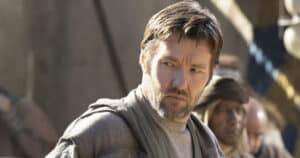
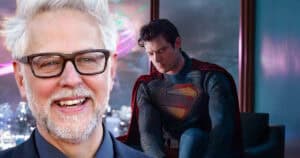



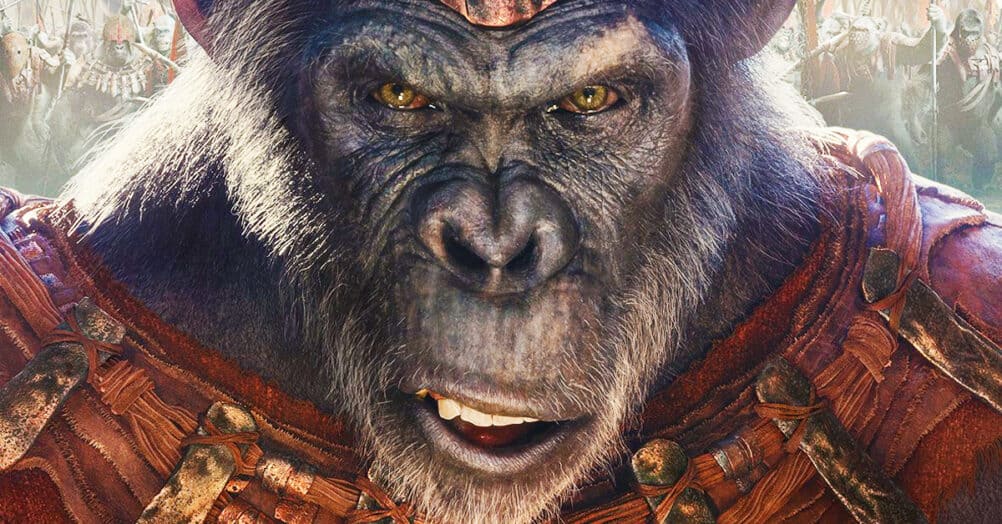
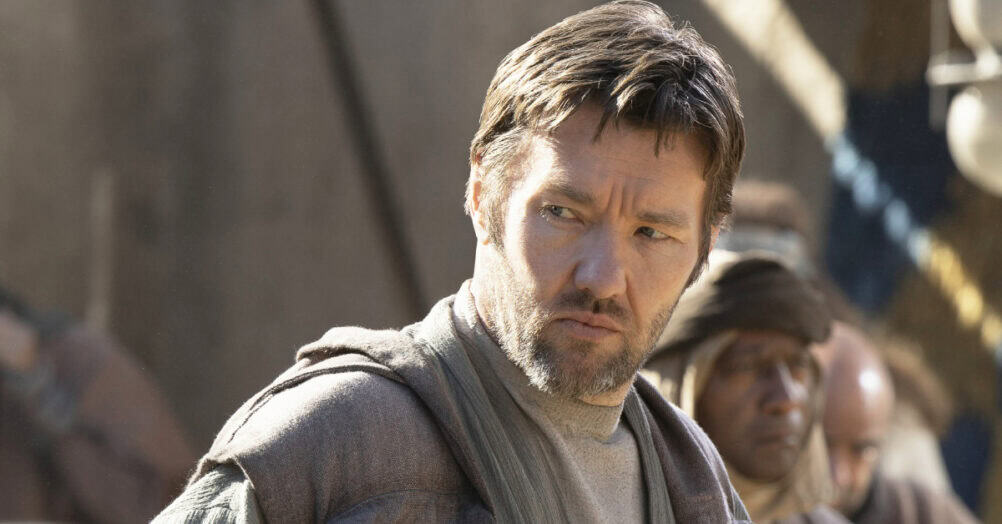

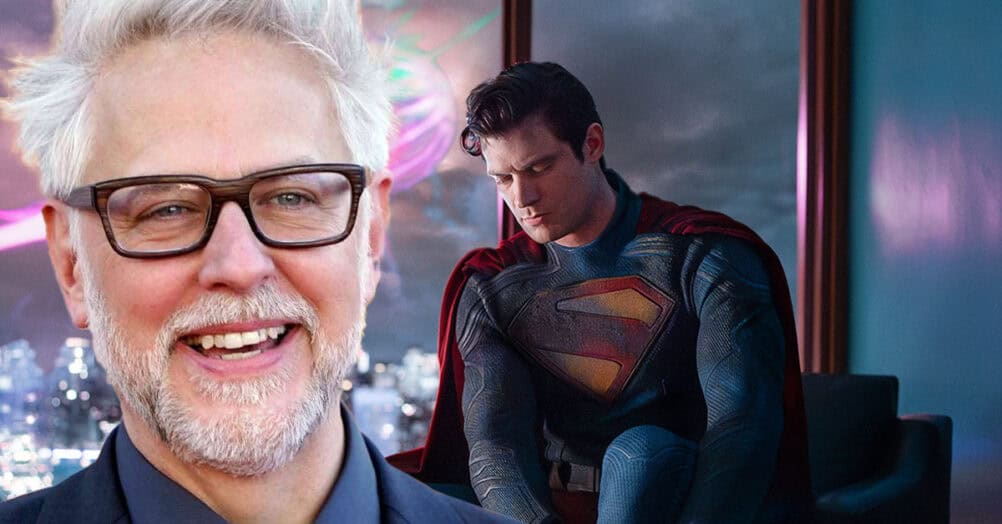
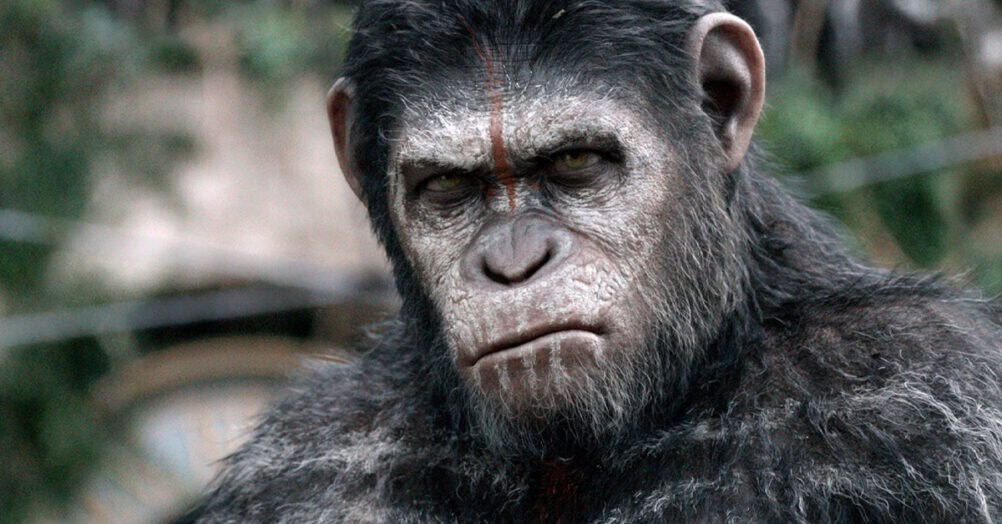
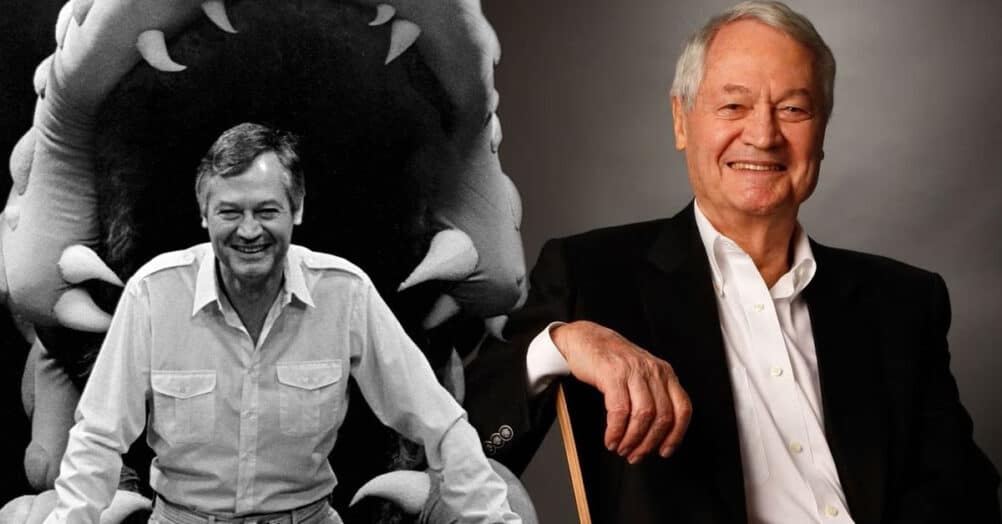
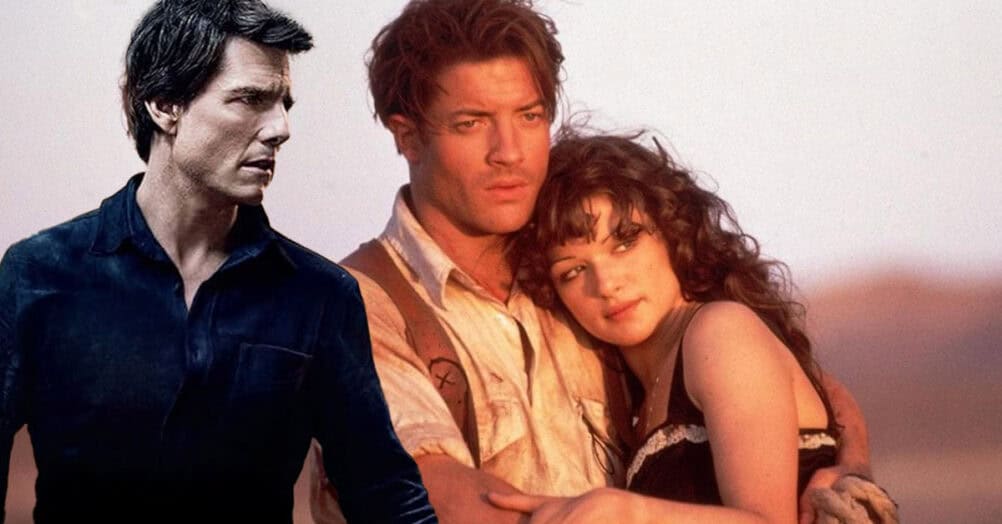
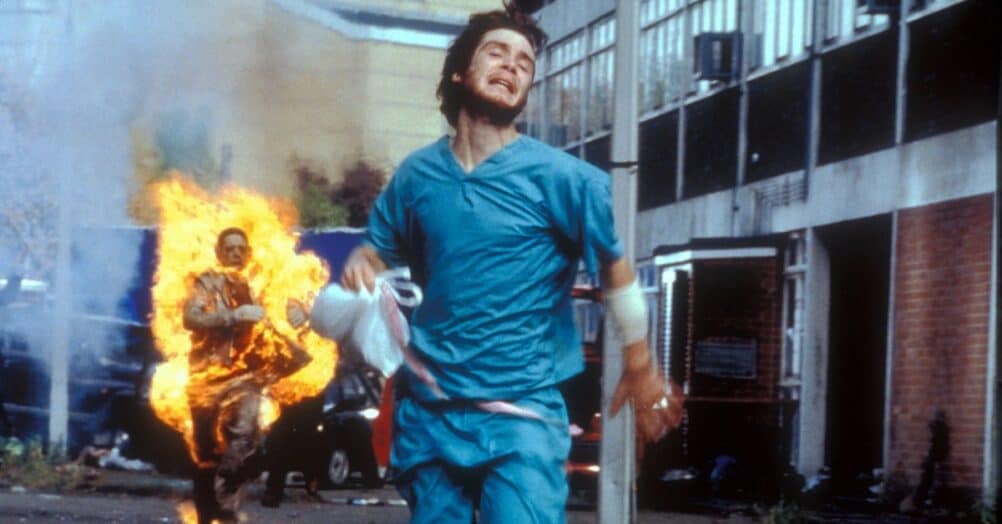
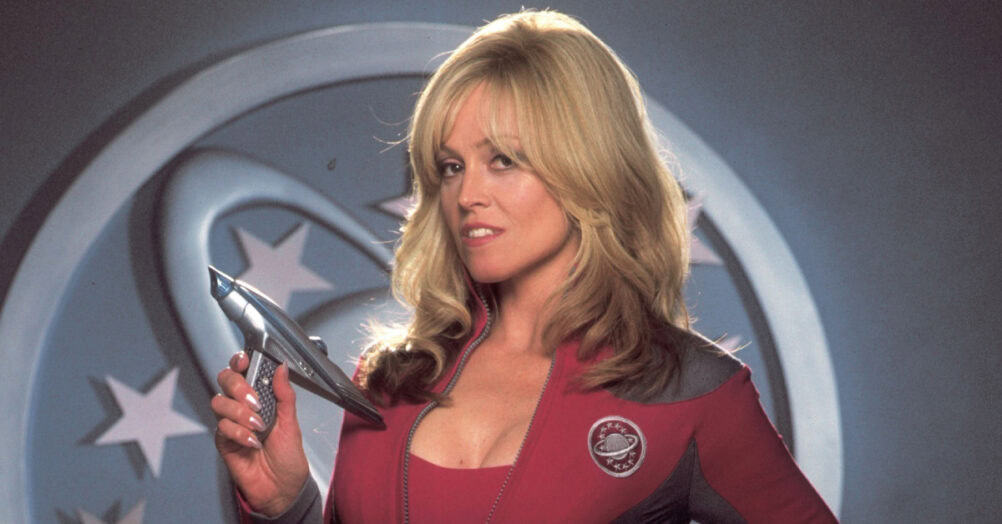
Follow the JOBLO MOVIE NETWORK
Follow us on YOUTUBE
Follow ARROW IN THE HEAD
Follow AITH on YOUTUBE